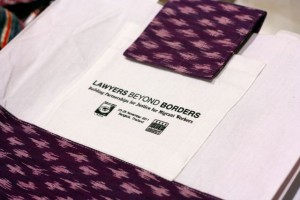Regional Workshop on Ethical Business and Recruitment Practices in Labour Migration in the Middle-East, North Africa and Asia
Category : Activities
On 1-4 May 2014 in Dubai, the UAE, MFA held a lawyers’ caucus as a major part of the Regional Workshop on Ethical Business and Recruitment Practices in Labour Migration in the Middle-East, North Africa and Asia. This was a training program for practitioners held in partnership with Migrant Forum in Asia, the Middle East Centre for Training and Development and the Diplomacy Training Program (DTP).
Thirty-two participants from 13 countries , including 10 lawyers from countries of origin in South Asia and Southeast Asia and countries of destination in West Asia, together with social workers, members of civil society, nationaluman rights institutions and private agencies, deliberated for four days on highly significant topics:
- The right to access remedy – for migrant workers
- Accountability and Access to Remedy – What remedy and redress mechanisms exist – and can be accessed by migrant workers; What access to remedy is offered by OECD Guidelines – Industry Standards and Codes of Conduct and ILO Conventions, NHRIs, Courts
- The UN Guiding Principles on Business and Human Rights and beyond
- The state and private sector – the Dhaka Principles, OECD Guidelines, Codes of Conduct, Litigation
- The State Duty to Protect Human Rights and the Right to Remedy
- Human Rights, Migrant Workers and Recruitment Agencies – Identifying the Gaps Between (Guiding) Principles and Practice
- Key Challenges in monitoring and regulating recruitment in the private sector – Can the GPs/DPs/OECD Guidelines/Codes Help
- The Corporate Responsibility to Respect – Key Challenges for the Recruitment Industry and Employers in Countries of Origin and Destination. Can the (Guiding/Dhaka) Principles Help
- Engaging With Business on the Rights of Migrants – The Why and How – Practical Session with Advocates
The training program equipped the practitioners with approaches to further understanding ethical business and recruitment practices, related frameworks and how they affect the rights of migrant workers and members of their families. Through role-playing and breakout sessions, the lawyers and civil society (considered as paralegal workers) were able to do run-throughs of probable responses to rights violation cases.
